Borderless expansion was undoubtedly the norm in China's Internet industry before, but in fact the same is true of the American market across the ocean. Almost all Internet manufacturers regard "casting a wide net and collecting more fish" as the standard for the development and growth of enterprises, and many successful products have indeed been born in this process, such as WeChat, but more new business is due to Closed because it didn't meet expectations. A few days ago, Meta announced that its game live-streaming business, Facebook Gaming, is about to cease operations.
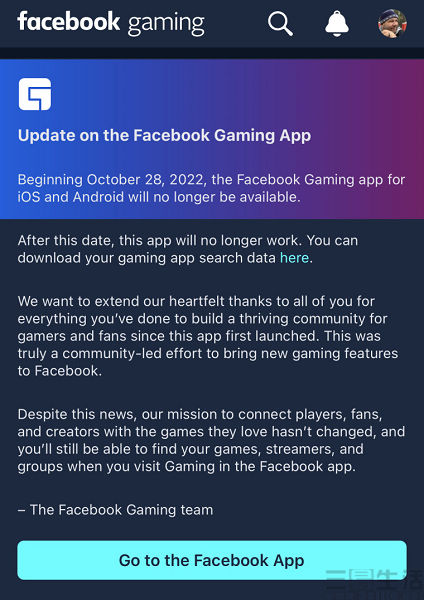
Facebook Gaming reminded users that starting from October 28, the app will no longer support iOS and Android platforms, but the official did not provide any reason for closing the platform. In fact, Meta is the second overseas giant to announce the abandonment of the game live broadcast business after Microsoft Mixer, and only two years have passed since the launch of Facebook Gaming.
In the spring of 2020, Meta launched the Facebook Gaming game live streaming platform. At that time, Meta confidently stated that Meta has more than 2.5 billion monthly active users, of which 700 million are very interested in games, and this application is mainly designed for players to watch and discover games. The head of Facebook's mobile app at the time once said, "It's a form of entertainment, it's not just a passive consumption method, it's an interactive entertainment that brings people together".
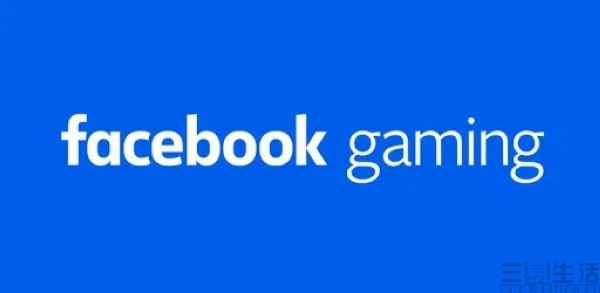
And Facebook Gaming also has its own highlights. One year after its launch, the platform has more than 400,000 live channels, more than 11,000 games, 600,000 groups, and 230 million monthly active users. . Unfortunately, the status quo of the overseas game live broadcast market environment has exceeded Meta's expectations. During the epidemic, the number of people playing games increased significantly, which is the basis for Meta and even Microsoft to enter the game live broadcast track, but what they did not expect is that although the epidemic is still raging, home isolation has not been able to last for a long time.

The short-term home isolation has made Microsoft and Meta's hopes of converting a large number of light game users into game live viewers to no avail . In fact, in the context of the recession of the overseas game live broadcast track, it is inevitable that Facebook Gaming, which has a smaller user scale, will be eliminated. According to statistics from third-party market research institutions, the viewing time of Twitch, Youtube Gaming and Facebook Gaming has dropped significantly last year. From April to June this year, viewers watched 7.36 billion hours on the above three platforms. That's down 18.1% from the same period last year.
Among Twitch, Youtube Gaming and Facebook Gaming, Twitch almost occupies a market monopoly position with a market share of up to 76.7%, followed by Youtube Gaming with 13.1% share, while Facebook Gaming has only 10.2%. According to the aforementioned report, despite Meta's efforts to add creators, Facebook Gaming has suffered an even bigger setback, with hours watched by users dropping by as much as 51% from a year ago, while streamers' live-streaming hours are even more so. down 62%.
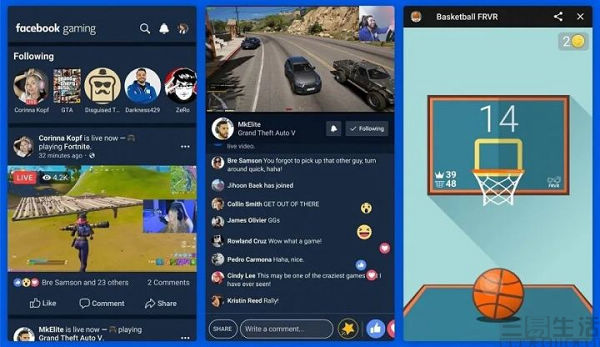
Following Meta’s announcement last year to fully enter the Metaverse, and to invest tens of billions of dollars in this business, it is only natural that Facebook Gaming was abandoned. But the more important reason is that Meta's longer-term goal of making game live broadcasts has also been more questioned in 2022. At that time, behind the four major overseas live streaming platforms twitch, Youtube Gaming, Facebook Gaming and Mixer stood Amazon, Google, Facebook and Microsoft respectively.
These four giants with a market value of hundreds of billions of dollars may not be interested in the small plate of game live broadcast. What they actually want is the game live broadcast channel, and they ultimately point to a market that is dozens of times larger than game live broadcast— - Cloud gaming. Two or three years ago, from game giants such as Microsoft, Sony, Nintendo, and Tencent, to Internet companies such as Amazon, Google, and Facebook, almost all of them were deploying, and cloud gaming was regarded as the hope of the next generation. Among them, Google has Stadia, Microsoft has xCloud , Amazon has Project Tempo, and Meta has Facebook cloud games.
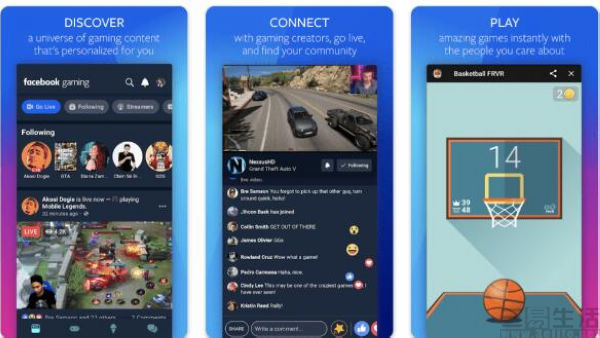
Regarding the linkage between game live broadcast and cloud games, Google has actually given the answer at the Stadia conference at GDC in 2019. Players can watch game videos through YouTube, then click and play the corresponding game directly, and when watching the live broadcast of the game, they can also apply to join the ongoing battle of the anchor in the live broadcast, or continue to play along the anchor's archive. For the game industry, acquiring new users is an almost eternal problem, and when game live streaming and cloud gaming are combined, the experience threshold for new players will be infinitely lower.
Unfortunately, however, the technological progress of cloud gaming is far behind the expectations of various manufacturers. Today, Google Stadia seems to be not far from shutting down, and there has been no news of Amazon and Meta's cloud gaming business for a long time. Only Microsoft's cloud gaming business has developed with the help of XGP. Since technical limitations have made cloud games unable to meet expectations, it is natural that the business model of game live broadcasting, which is not low in cost and not very profitable, has been neglected.
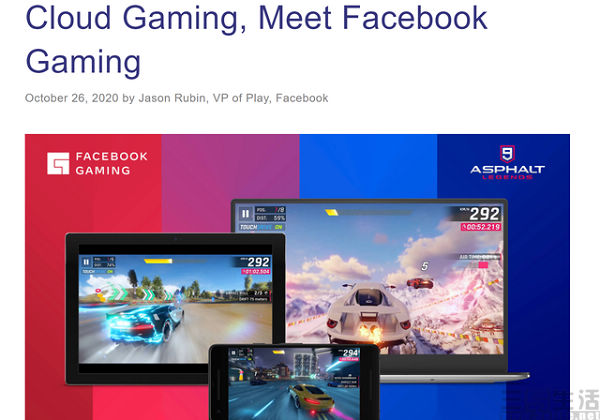
When Meta chooses the metaverse that looks higher and higher, and the core advertising business is under pressure, the game live broadcast, a business that is not so high in terms of short-term liquidity and long-term strategic value, should not be abandoned. reason.